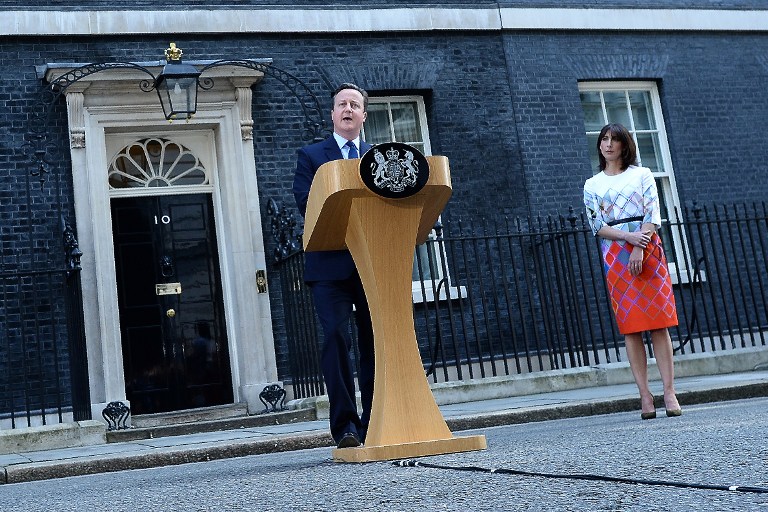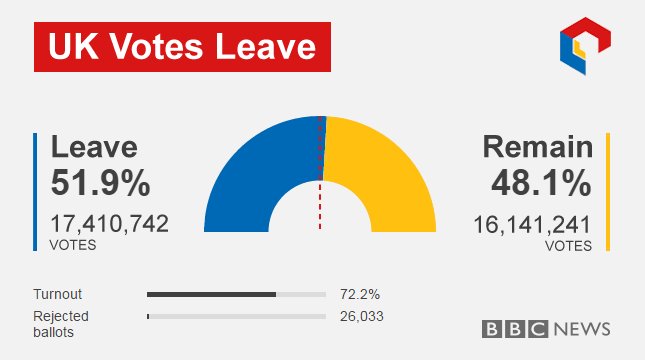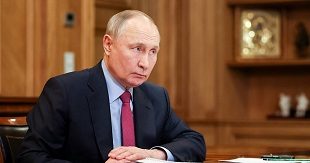
BREAKING NEWS: Prime Minister David Cameron announced Friday he will resign after Britons voted to leave the EU in defiance of his warnings of economic pain.
Cameron promised to try to “steady the ship” over the next months but said a new leader should be installed by early October.
“I do not think it would be right for me to try to be the captain that steers our country to its next destination,” the British leader said outside his official Downing Street residence in London.
UK Prime Minister David Cameron says he will step down by October https://t.co/jo2sWrbZxk #EUref #BrexitVote
— BBC Breaking News (@BBCBreaking) June 24, 2016
Cameron’s legacy in tatters as luck runs out over EU
London, United Kingdom | AFP |
After the failure of his high-stakes referendum gamble, David Cameron’s legacy as the prime minister who took Britain out of the European Union was sealed Friday with his resignation.
Cameron promised the referendum to try and unite his Conservative party but the result means Britain becomes the first country ever to leave the bloc and raises questions about the future unity of the United Kingdom.
In announcing his intention to quit, Cameron said he had put his “head, heart and soul” into the “Remain” campaign so had little option but to go after voters rejected EU membership by 52 percent to 48 percent.
As the referendum campaign took on an increasingly anti-establishment, anti-elite tone, the polished authority of Cameron, supported by big hitters from US President Barack Obama to the International Monetary Fund, struggled to cut through.
Financial Times commentator Janan Ganesh wrote that Cameron must now “prepare to be remembered for inadvertently presiding over the end of his country’s 43-year place in the European project — and for nothing else.”

Youngest PM in 200 years
The son of a stockbroker, Cameron was educated at elite boarding school Eton and Oxford University, where he was admitted to the Bullingdon Club, a hard-drinking, socially exclusive student group.
He worked for the Conservatives as an advisor before a stint in public relations, which ended when he was elected to parliament in 2001.
Cameron rose swiftly through the ranks of the party — which was then struggling badly against prime minister Tony Blair’s Labour government — and was elected leader in 2005 at the age of 39.
He tried to “detoxify” the party brand in part by avoiding discussion of the EU, which has split the Conservatives since Margaret Thatcher’s premiership in the 1980s.
At the 2010 general election, Cameron became the youngest premier for 200 years but the centre-right Conservatives did not win enough seats to govern alone and had to form a coalition with the centrist Liberal Democrats.
The coalition was dominated by spending cuts as Britain emerged from recession, while foreign policy debate was largely hijacked by Conservative wrangling over the EU.
A previous risky referendum gamble paid off when Scotland voted to stay as part of Britain in 2014.
After five years in coalition, the Conservatives won a surprise clear majority in the May 2015 general election, allowing them to rule alone.
The win meant that the EU referendum — first promised by Cameron in 2013 to placate his restive party, but which many in Westminster say he never believed would happen — became a reality.
Loyal lieutenants lost
Cameron spent much of the rest of 2015 lobbying other European countries for a deal to improve Britain’s relations with the EU.
Sealed in February, this allowed him to argue going into the referendum that Britain had a “special status” in the 28-country bloc, notably allowing it to limit benefit payments to EU migrants.
But the deal was derided as “thin gruel” by some Conservative MPs.
The bitterest blows to Cameron came as campaigning got under way.
Some of his most loyal lieutenants including justice minister Michael Gove — godfather to one of Cameron’s children — said they would campaign for Brexit.
Then Boris Johnson, who was London’s charismatic mayor at the time, sprung a surprise by also backing “Leave”.
During the campaign, Cameron led from the front with a barrage of speeches arguing that Britain’s economy would be badly hit by Brexit.
However, he failed to counter the “Leave” camp’s argument that immigration from EU countries needed to be cut to reduce the strain on public services, and that this could only happen if Britain left.
His old rival Johnson, who quickly morphed into a leading pro-Brexit figure, is favourite to succeed him as prime minister.
Ultimately, though, a change of prime minister might be seen as one of the less significant consequences for a country which is now plunging into the unknown.
 The Independent Uganda: You get the Truth we Pay the Price
The Independent Uganda: You get the Truth we Pay the Price


